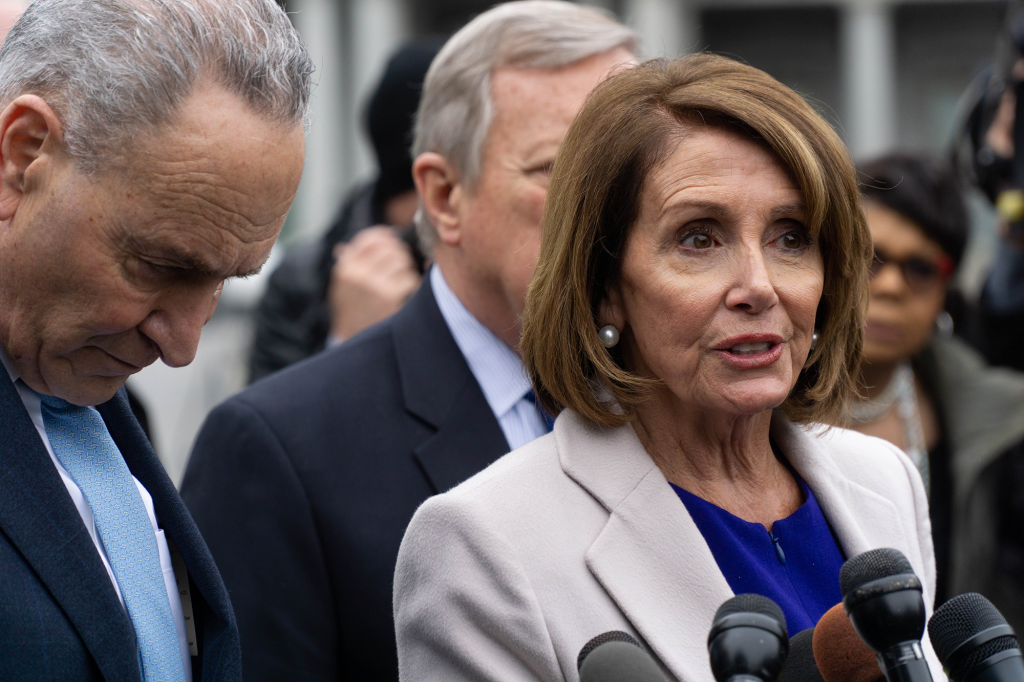
Published March 1, 2019
Reports indicate that House Democrats are in turmoil over some moderates’ recent votes with Republicans on the House floor. The internal squabbles are more than an inside baseball battle; they indicate that the party still hasn’t figured out why they lost so badly in the 2010 midterm elections.
It may be hard to recall, but Democratic moods were giddy in early 2009. They held the presidency, a 60-seat, filibuster-proof majority in the Senate and a whopping 257 seats in the House. Collectively, Democrats held more power in Washington than they had since before President Ronald Reagan’s election nearly 30 years prior. National magazines featured pictures of President Barack Obama as the new Franklin D. Roosevelt, ready to usher in a new period of Democratic dominance.
It was all gone in just two years. The 2010 midterms gave Republicans their largest House seat gains and their biggest majority since 1948. Senate Republicans picked up six seats, and likely would have gained three more but for the nomination of fatally flawed tea party candidates in Nevada, Colorado and Delaware. Democrats have been clawing back from those losses ever since.
Any outside observer could see why this happened. On a host of issues — especially Obamacare, climate change and a massive economic stimulus package — the party got too far out in front of public opinion. The long-frustrated Democratic base wanted quick movement on all its priorities at once.
The mood was summed up by one exchange between Obama and his treasury secretary, Timothy F. Geithner. According to reports, Obama and Geithner were on a conference call shortly after the election, and Obama was talking about the expansive agenda he would pursue. Geithner objected, telling the president that his “legacy is going to be preventing the second Great Depression.” Obama responded, “That’s not enough for me.”
It would have been more than enough for the people who elected him.
Obama and the congressional leadership forgot that they won their majorities by persuading people who had voted for President George W. Bush just four years prior to entrust them with power. Those voters were willing to try a new course, but they had not signed on board for a different voyage.
Nevertheless, in vote after vote, leaders pushed, cajoled and compelled members representing Republican-leaning districts to back the party line. House Speaker Nancy Pelosi (D-Calif.) was especially tough, pushing for House passage of an ambitious climate change bill with red-seat Democratic votes, even though Senate passage was highly unlikely.
The result was damning. Since 2010, Democrats have found it increasingly difficult to win in areas in which they once had dominated or at least been competitive. In 2009, Democrats held 98 House seats and 23 Senate seats in states Bush carried in 2004. Today, they hold only 74 House seats and a mere seven Senate seats in those same states.
The current Democratic House majority rests on holding seats that President Trump carried in 2016. Twenty-nine House Democrats hold districts that Trump won. Others hold seats that had long been Republican but swung to Hillary Clinton in 2016. Members in these seats recognize their voters are different and don’t want all of the progressive agenda forced down their throats.
Yet that is exactly what Pelosi and Democratic progressives such as Rep. Alexandria Ocasio-Cortez (D-N.Y.) seem to want them to do. “We are either a team or we’re not,” the speaker reportedly toldmoderates who voted Thursday for Republican amendments to a bill expanding background checks for gun purchases. The 29-year-old member from the Bronx characteristically went further, threatening to put those moderates who sided with Republicans “on a list” for primary challenges.
Neither Pelosi nor Ocasio-Cortez seems to understand why they hold the majority at all. They did not win because a majority of Americans suddenly decided that Sweden is a global paradise. They won in part because many Democratic candidates promised to deliver “new leadership” on both sides of the aisle. Most of all, they won because moderate former Republicans want Trump checked and out of office.
The don’t want a Green New Deal that promises a federal-led “mobilization on a scale not seen since World War II.” They don’t want to abolish the Immigration and Customs Enforcement Agency. They don’t want the mandatory government health-insurance system envisioned by the Medicare-for-all proposals. They don’t even want to impeach the president. They just dislike Trump.
Democrats who vote for Republican floor amendments do so because they aren’t getting what they want from the bills the Democratic leadership is putting forth. If the speaker wants them to get on the team, maybe, as the team manager, she needs to get them into the game.
Henry Olsen is a Washington Post columnist and a senior fellow at the Ethics and Public Policy Center.








